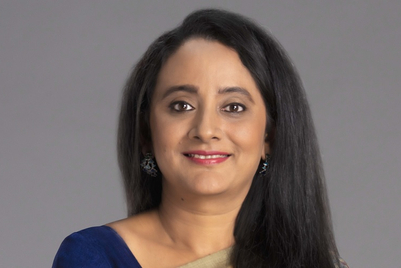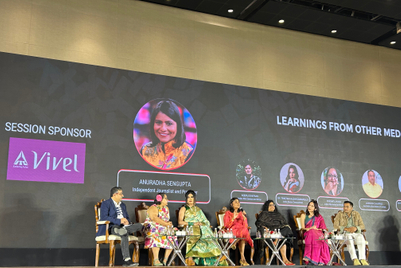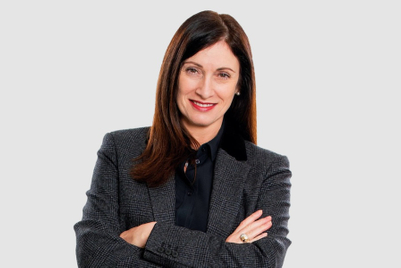
Asia-Pacific markets including Hong Kong, the Philippines, Singapore and Vietnam accounted for some of the biggest drops in Mastercard's annual ranking of the best economies for women entrepreneurs, which has seen significant shifts due to Covid-19.
The Mastercard Index of Women Entrepreneurs (MIWE) 2020 report analyses how women in business are progressing across 58 global economies—representing almost 80% of the international female labour force—and the socio-economic factors propelling and inhibiting their success. The index ranks the economies based on several indicators such as financial access and supporting entrepreneurial conditions.
In the 2020 report, 12 markets moved up by five or more ranks, while 10 fell by five or more. Asia Pacific markets Singapore (-12), Philippines (-10), Hong Kong SAR (-8) and Vietnam (-7) accounted for some of the biggest drops.
Markets that fostered a positive environment for female entrepreneurs include Mainland China (+6) and Indonesia (+5).
Julienne Loh, EVP of enterprise partnerships Asia Pacific at Mastercard, said the findings make clear that regardless of an economy’s wealth, level of development, size, and geographic location, gender inequalities "continue to persist".
New Zealand tops the list of Asia-Pacific markets at fourth place in the ranking—although it fell from first place in 2019. Its followed in the top 20 ranking by Australia at ninth place, Thailand at 11th, Chinese Taipei at 12th, Hong Kong at 15th, Philippines at 16th and Indonesia at 17th.

These markets all have 'healthy' scores for women, while Japan and India are among 13 markets to have lower scores. Bangladesh has the lowest ranking on the list. In Japan, India, Bangladesh, Saudi Arabia, Algeria, Egypt, Tunisia and Turkey, women represent only 6% to 15% of business leaders, according to the report.
The report found a clear correlation between markets that have clear gender-targeted policies, and women’s entrepreneurial success.
The top performing economy for women, Israel, laid out a clear ambition in 2019 to double the number of female entrepreneurs within two years via grants and support for female-founded businesses, after finding that only 8% of startups are led by women. The country rose to the top slot from fourth place in 2019.
The report also found evidence that female business leaders have been disproportionally impacted by the Covid-19 pandemic. In the report, Mastercard said this is due to several key factors: the over-representation of women in the jobs and sectors that have been hit the hardest (such as tourism, travel and transport, retail, food), the pronounced gender gap in the digital industry, and the mounting pressures of childcare responsibilities.
Data from International Labor Organization (ILO) shows that globally, of the 136 million fighting at the frontline, 70% are women. As of March 2019, around 75% of health and social care professionals are women, equivalent to around 20 million female health care professionals compared with 6.3 million men. Women in developing economies have been harder hit due to on-average lesser knowledge assets and an overrepresentation in the informal and harder-hit business sectors, Mastercard said in the report.
Mastercard's Loh said Covid-19 has "disproportionately disrupted women’s lives and livelihoods" and "exacerbated an already problematic situation" for women.
"This moment in time is fragile unless governments, financial services and business organisations come together to do three things: offer systemic support and programs to enable women to survive and thrive in this new normal, equip them with skills to navigate the digital world, and nurture an equitable, accessible financial services system that supports women’s work and entrepreneurship. These are not easy to deliver, but investments like these can yield priceless dividends for not only women, but society as a whole," Loh said.
She noted that women entrepreneurs have demonstrated strength and endurance in the face of adversity, with 42% of female-run businesses shifting to a digital business model and 34% identifying new business opportunities since the pandemic, according to the report.
Sue Kelsey, EVP of global consumer products and financial inclusion, added: "A crisis will always reveal vulnerabilities in the system, and Covid-19 has done that in spades. We have seen the staggering extent of the disparity women in business face. But unlike any other economic downturn, Covid-19 has also paved the way for considerable progress and we have seen what can be achieved when priority is given."
(This article first appeared on CampaignAsia.com)



.jpg&h=334&w=500&q=100&v=20250320&c=1)
.jpg&h=334&w=500&q=100&v=20250320&c=1)


.jpg&h=334&w=500&q=100&v=20250320&c=1)

.jpg&h=334&w=500&q=100&v=20250320&c=1)

.jpg&h=334&w=500&q=100&v=20250320&c=1)
.jpg&h=268&w=401&q=100&v=20250320&c=1)



.jpg&h=268&w=401&q=100&v=20250320&c=1)

.jpg&h=268&w=401&q=100&v=20250320&c=1)
.jpg&h=268&w=401&q=100&v=20250320&c=1)
